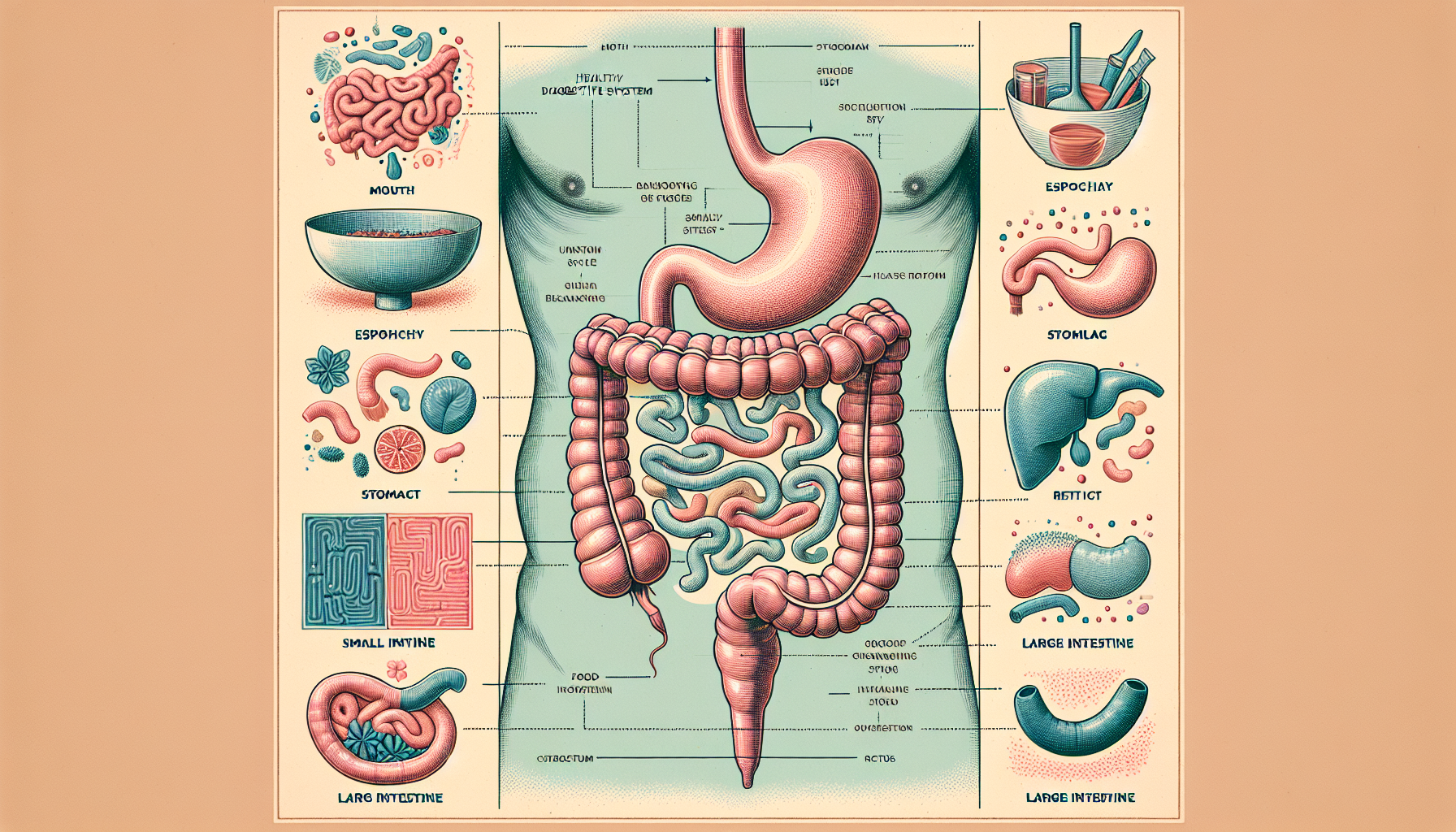The human digestive system is a complex and finely tuned structure that plays a critical role in overall health and wellbeing. It is where nutrients are absorbed, waste is processed, and a significant part of our immune system resides. One aspect of digestive health that is often overlooked yet is essential for optimal function is the pH balance within the gut. This balance can have a profound impact on digestive wellness, influencing everything from enzyme activity to the composition of the gut microbiota.
Understanding Gut pH
The pH level in the gut refers to how acidic or alkaline the environment is. It varies throughout the different parts of the digestive system, from the highly acidic stomach to the more neutral small intestine and the slightly alkaline colon. This gradient is essential for the digestion and absorption of different nutrients, as well as for the prevention of harmful bacterial growth.
The stomach’s acidic environment, with a pH typically around 2, helps break down food, absorb certain nutrients like vitamin B12, and acts as a barrier to pathogens. As food travels through the small intestine, the pH becomes more neutral, allowing different enzymes to work effectively. In the colon, a slightly alkaline environment supports the growth of beneficial bacteria while inhibiting pathogenic ones.
The Impact of pH Imbalance
An imbalance in gut pH can lead to several digestive issues. For instance, too much acidity can result in acid reflux, while not enough acidity may lead to poor nutrient absorption and bacterial overgrowth. Chronic imbalances can contribute to conditions like gastritis, peptic ulcers, and even increase susceptibility to infections.
Acid Reflux and Hyperacidity
When the stomach is excessively acidic, it can cause discomfort and lead to acid reflux, where stomach acid escapes into the esophagus. This condition can be exacerbated by certain foods, stress, and lifestyle factors. Persistent acid reflux is known as gastroesophageal reflux disease (GERD), which can damage the esophageal lining over time.
Nutrient Absorption
Gut pH is also crucial for nutrient absorption. Enzymes that digest proteins, fats, and carbohydrates are sensitive to pH levels, and their activities can be hindered if the pH is not optimal. For example, the absorption of minerals such as calcium and magnesium is affected by intestinal pH, linking gut health directly to bone health.
Microbiota Composition
The gut microbiota, which plays a vital role in health and disease, is also influenced by the pH of the gut. A balanced pH supports a diverse and healthy microbiome, which in turn supports digestive health, immune function, and even mental wellbeing through the gut-brain axis.
Factors Influencing Gut pH
Several factors can influence the pH balance of the gut, including diet, medication use, lifestyle choices, and underlying medical conditions.
Diet
The food we eat can significantly impact the gut’s pH. Diets high in animal protein, processed foods, and sugar can lead to an acidic environment, while fruits, vegetables, and plant-based foods tend to have an alkalizing effect. Incorporating a variety of whole foods can help maintain a healthy gut pH.
Medications and Supplements
Certain medications, like proton pump inhibitors and antacids, can alter stomach acidity and, over time, affect the pH throughout the digestive tract. On the other hand, supplements such as probiotics and digestive enzymes can help restore and maintain pH balance. More information on this can be found at Medication & Supplements.
Lifestyle Choices
Stress, lack of sleep, and physical inactivity can all disrupt gut pH. Chronic stress, in particular, has been shown to increase stomach acidity, which can lead to a cascade of digestive problems.
Medical Conditions
Conditions such as Helicobacter pylori infection or pancreatic insufficiency can lead to abnormalities in gut pH. Addressing these underlying issues is crucial for restoring pH balance and digestive health.
Strategies for Maintaining Gut pH Balance
Diet
Eating a balanced diet rich in fiber, fruits, vegetables, and whole grains can help maintain a healthy gut pH. Fermented foods such as yogurt, kefir, and sauerkraut are particularly beneficial as they contain lactic acid-producing bacteria that can help balance gut pH.
Hydration
Adequate hydration is essential for maintaining gut pH. Water aids in digestion and helps flush out excess acids. The recommendation is to drink at least eight 8-ounce glasses of water a day.
Stress Management
Managing stress through meditation, exercise, or therapy can help reduce excess stomach acid production. Regular exercise not only helps with stress but also improves gut motility and balance.
Avoiding Trigger Foods
Foods that are known to increase acidity, such as spicy foods, caffeine, and alcohol, should be consumed in moderation. For those with acid reflux or GERD, avoiding these triggers is particularly important.
Supplements
Supplements like probiotics, prebiotics, and digestive enzymes can support gut health. Probiotics help replenish good bacteria, prebiotics feed those bacteria, and enzymes aid in the breakdown of food.
External Resources
Incorporating the advice of trusted health organizations and niche resources can provide additional strategies for managing gut pH balance. Here are a few external resources that offer in-depth information:
- Digestive Disease Information Clearinghouse
- National Institute of Diabetes and Digestive and Kidney Diseases (NIDDK)
- International Foundation for Gastrointestinal Disorders
Conclusion
The gut pH balance is a critical yet often neglected aspect of digestive health. Maintaining the right pH levels throughout the digestive system can prevent discomfort, improve nutrient absorption, and support a healthy microbiome. By paying attention to diet, managing stress, staying hydrated, and understanding how lifestyle choices affect gut health, individuals can take proactive steps toward optimal digestive function and overall wellbeing.
For those facing digestive health challenges, it’s important to consult with a healthcare provider to identify any underlying issues and develop a personalized plan to restore and maintain gut pH balance. Remember, a balanced gut is a cornerstone of a healthy body and mind.



